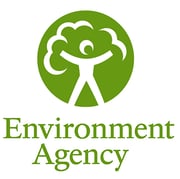Unlocking change: a maturity model for impact


Challenge
In a world where public finances are becoming increasingly tighter and the drive for internal efficiencies is becoming more important in a growing digital age, the Environment Agency has recognised that being set up for effective change delivery is of paramount importance.
The Environment Agency is in the process of establishing and embedding a new transformation team, responsible for driving and coordinating internal change activity across the business. This team will play a central role in enabling the Environment Agency to deliver against its new organisational strategy, due to launch in summer 2025.
To ensure the transformation team is set up for success, the Environment Agency wanted a clear and evidence-based understanding of the current baseline maturity of change delivery across the organisation. This included gaining insight into how change is currently delivered at both corporate and portfolio levels, identifying areas of strength and variability, and surfacing opportunities to improve consistency, coordination and capability. The aim was to identify a prioritised set of practical actions and enablers that would support the Environment Agency to strengthen its internal change delivery maturity and ensure it is well-placed to deliver its future ambitions.
The client team brought significant internal expertise in P3M3 and change delivery, and Methods were brought in to act as a trusted, objective, external voice, helping to validate thinking, offer an outside-in perspective, and support the shaping of practical next steps
Solution
Methods were asked to conduct a maturity assessment based on change delivery and portfolio, programme and project best practice, specific to the Environment Agency and their needs.
Our team met with the client to understand the complexities and specific elements they were keen to explore further, and Methods then designed a bespoke review in collaboration with the client team. The assessment was designed with enough structure to deliver clear outcomes, while remaining flexible and responsive to emerging priorities.
Over the three-month period, we delivered the following:
- designed a bespoke interview and data-capture approach
- interviewed 48 individuals from across the business, including senior leaders, portfolio managers, and change managers
- surveyed receivers of change
- reviewed employee survey feedback
- analysed the data and identified 15 emerging themes across the organisation’s directorates
- developed a model for delivering and prioritising maturity areas, based on the dependencies between them
- conducted two workshops with key stakeholders to explore the themes, agree on priorities, and begin shaping a practical action plan
- researched best practice advice to incorporate public and private sector insight into recommendations
- designed strategic communications for the client team to use with senior leaders.
A key driver of success in this engagement was the strength of the working relationship between the Environment Agency and Methods. The client team was highly collaborative, generous with their time, and invested in creating a productive partnership. Regular engagement enabled stronger trust, richer discussion, and faster iteration, which both sides recognised as adding significant value.
Rather than delivering a fixed assessment in isolation, Methods collaborated with the Environment Agency’s internal experts. The Environment Agency brought deep knowledge of P3M and change best practice, as well as hands-on delivery experience, and this was actively leveraged throughout the work. Our approach was co-designed, adapted in real time, creating outputs that felt owned by the organisation and aligned with its ambitions.
As new questions and areas of interest emerged through the discovery process, the client welcomed an agile, responsive approach that allowed us to evolve the assessment without losing focus on agreed-upon outcomes.
Impact
The collaborative nature of the engagement enabled a richer understanding of the Environment Agency’s current change landscape and created a shared commitment to the next steps.
- Methods were able to baseline P3M and change maturity across the Environment Agency, as well as identify the root causes of specific challenges, providing evidence to support the business case for maturity development
- Recommendations were practical, prioritised, and mapped to dependencies, enabling a structured and realistic approach to implementation
- The detailed review provided insight at both the corporate level and across five individual portfolios, providing portfolio managers with the evidence needed to support maturity growth within their teams
- Findings were validated against employee survey data, combining quantitative and anecdotal insight to strengthen the case for change
- Workshops helped align senior stakeholders on shared priorities, identify quick wins, and confirm the importance of organisation-wide responsibility for building delivery maturity
This work laid the foundation for a phased roadmap to improve change delivery capability and will support the Environment Agency in delivering its transformation ambitions in the years ahead.
"Methods were flexible with their delivery approach and provided a professional service which was very much tailored to our organisation’s needs."